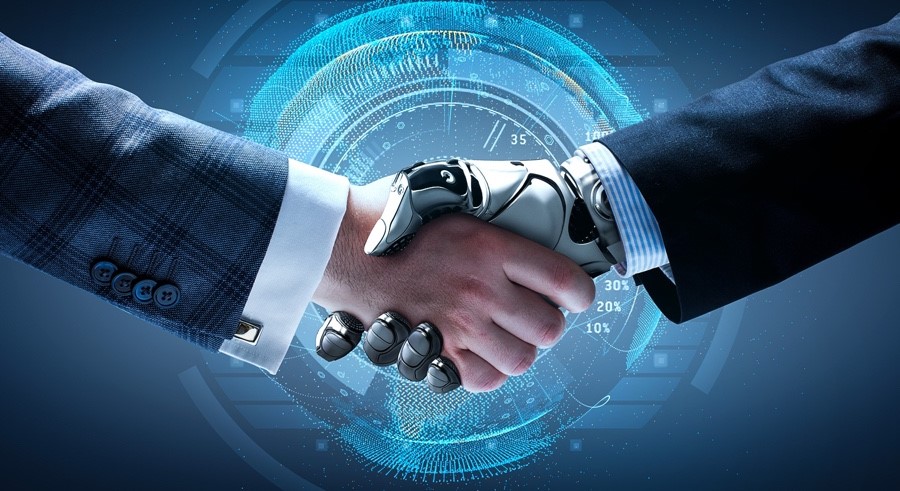The professional world is undergoing a significant transformation in the 21st century, driven by the rapid advances of the digital age. As the Fourth Industrial Revolution spreads across sectors, it creates a variety of technical advancements ranging from artificial intelligence to blockchain. This shift has dramatically changed how we view and participate in work. The article goes into this transforming journey, investigating the enormous impact of the digital revolution on our workplaces, the rise of new skills, and the critical need for modification.
The Digital Revolution
The world has now become an array of digital miracles. Technology has hugely impacted businesses and altered the means of employment. Traditional standards are giving way to remote employment, virtual cooperation, and a freelancing market. The change accelerated by the COVID-19 pandemic has made remote work a permanent feature in many industries. Hence, it provides employees with freedom and enhances the talent base of the companies as well.

Automation and AI
Automation and AI have revolutionized the way we work. Tasks that were once manual and time-consuming can now be done faster and more efficiently. These technologies have opened up new opportunities, but they’ve also shifted the skills needed in the job market. Adaptability and learning are becoming key as we embrace this evolving landscape.
Skills for the Future
The digital era involves acquiring new skills. Data analysis, digital marketing, and programming skills are becoming increasingly useful. Continuous learning and adaptation are critical for being competitive in this ever-changing work environment. The emphasis is on developing skills that cannot be replicated by robots, such as creativity, critical thinking, and emotional intelligence. These characteristics not only supplement technological abilities but also define the human touch in the digital workforce.
Challenges and Solutions
This progress comes with some challenges. The elements such as data privacy, cybersecurity, and digital disparity have to be addressed. Organizations must guarantee that the advantages of digitization are accessible to everyone by supporting a fair and inclusive workplace. It is critical to strike a balance between technical innovation and ethical issues. Transparent rules, strong cybersecurity safeguards, and attempts to bridge the digital gap are critical steps toward achieving a digitally inclusive society.

E-Commerce in the Digital Workforce
E-commerce is the foundation of our current digital age. The need for experts experienced in e-commerce strategy, digital marketing, and website optimization is increasing. Those who understand these complexities will be at the forefront of the digital workforce. E-commerce not only changes the way businesses function, but it also opens up new doors for entrepreneurs, content creators, and digital marketers. The key to success in the thriving e-commerce industry is understanding the complex dynamics that influence customer behavior and taking advantage of digital platforms.
Adapting to the Digital Age
Rapid advancements in digital technology have revolutionized the nature of work. The labor market is experiencing a transformation characterized by the disappearance of certain professions and the emergence of new ones. Technology, which was formerly considered a distinct entity, is now a fundamental component of our daily lives, and digital skills are not only beneficial, they are essential.
Vocational Education and Training
Amidst the ongoing digital transformation, vocational education and training (VET) has emerged as a promising and optimistic prospect. On-the-job training exposes employees to cutting-edge industry innovations and also develops practical skills. Upskilling and reskilling through VET provide a strong basis for individuals embarking on entirely new job possibilities. The appeal of VET extends beyond its technical expertise, encompassing a holistic approach that cultivates creativity and problem-solving skills.
Beyond Digital Literacy
Success in the digital world requires a combination of technical expertise and soft skills. Communication, leadership, and organizational skills are the threads that lead to the success of businesses and individuals. Working in the digital era is an adventure of adaptation. The old makes way for the new, and a mix of technical and interpersonal skills, along with lifelong learning, paves the way for a brighter future. Accepting this transformation, grabbing its complexities, and mastering the skill of technology will be the characteristics of success in this exciting new era of work.

The Bottom Line
The digital age is not just about technology but a new way of understanding how work functions. It invites us to accept change, develop varied skills, and build an inclusive, inventive, and ethical work environment. We are shaping the digital age by embracing digitization, promoting a culture of constant learning, and nurturing the human aspect of work.
Disclaimer: Any opinions expressed in this article do not necessarily reflect the opinions of Gibbous. This content is meant for informational purposes only.







